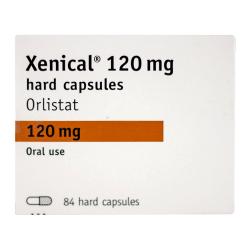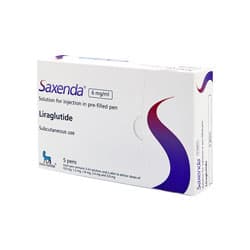Weight Loss: start your consultation
- 1. Answer the online medical questions
- This helps our doctors to decide which treatment is safe for you.
- 2. Select your treatment
- You will see a list of recommended treatments. You can select the one you prefer.
- 3. Checkout and delivery
- Once you’ve completed the checkout, our doctors will review your answers. If all is safe, you will receive your treatment tomorrow.
Available Treatment(s)

- Highly effective weight loss treatment
- Reduces appetite
- Once-weekly injection

- Effective weight loss treatment
- Once weekly injection
- Curbs your appetite

- Weight loss tablet
- Blocks 30% of fat from every meal
- Clinically-proven results

- Proven prescription weight loss treatment
- Buy Xenical online with no face-to-face appointment
- Fast and discreet delivery
Weight Loss
Advice and tips for losing weight
Obesity is classed as having a BMI (Body Mass Index) score of over 30. Obesity has grown to become a leading global health concern, affecting people of all ages. The number of people in the UK who are seriously overweight has more than tripled over the last 30 years. It is now estimated that one third of all UK adults are at risk of developing serious life threatening conditions because they are overweight.
Fortunately, these conditions can be successfully avoided through a combination of lifestyle changes (i.e. dieting and exercise) or, in more extreme cases, prescription medication. Medication, such as Xenical or Saxenda, can help when weight loss becomes a struggle and extra support is required. Xenical pills or the Saxenda injection pen can help you lose weight safely and effectively. These fast-acting weight loss medicines are available to buy quickly and securely online at OnlineClinic.
What is obesity?
Obesity is a health condition that develops because of an accumulation of excessive body fat. It can be caused by a large number of reasons, including genetics, but is more likely to affect people who have unhealthy lifestyles. Childhood obesity can be a strong indicator of weight-related health problems in later life. The NHS clarifies obesity as 'someone who is very overweight, with a lot of body fat'.
Healthcare professionals normally use the body mass index (BMI) to work out whether a person's weight is healthy in relation to their height. A person with a BMI higher than 30 is normally classed as obese and may be advised to lose weight, but a doctor will judge that alongside other variables. Luckily obesity can be prevented and even treated through embracing a healthier lifestyle, accepting help from medical professionals or by taking prescription medication.
Obesity causes
Obesity usually develops gradually after a large number of calories is continually consumed and not burned off. Unhealthy eating habits (i.e. binge eating and food frequency) and poor lifestyle choices (i.e. lack of exercise) can cause a build-up of fat reserves in the body, causing significant weight gain. Many times a person's eating habits are influenced by emotional and psychological factors, but genetics can also mean that you metabolise fat in a different way to other people.
Additional causes of obesity can include:
- Hormones – conditions such as polycystic ovarian syndrome and an underactive thyroid can cause weight gain.
- Social factors – the influence of overweight or obese family members and peers can negatively affect your dietary habits.
- Medications – antidepressants are linked to weight gain, which can then evolve into obesity when taken alongside other factors, such as those listed above.
Signs of obesity
Simply observing yourself in the mirror before and after weight loss can give you a good indication as to whether you are overweight or obese. There is however a much more accurate technique that can be used to assess whether or not you are classed as obese. This method is called the Body Mass Index (BMI) score.
Body Mass Index
Body Mass Index (BMI) is a common measurement that is used to help define your body weight. It is a standard measurement that applies to both sexes and is typically used by many medical professionals to determine whether your weight levels are healthy. Once a number has been established, it is compared to the BMI chart. There are several different BMI categories you could fall into. The four main ones include:
- Underweight: Below 18.5
- Normal: 18.5 to 24.9
- Overweight: 25 to 29.9
- Obese: 30 and Above
If your body weight is healthy, your BMI would fall between 18.5 and 24.9. However, you would be considered underweight if your BMI was 18.5 and below. If your BMI number is over 25, you would fall into the overweight category. Anything above 30 is classified as morbidly obese. If your number is over 30, you could be putting yourself at an increased risk of life-threatening illnesses associated with obesity.
The BMI calculator will not always give a perfect representation of your weight levels. For example, many bodybuilders, sports stars and athletes who have a lot of muscle mass will score high on the BMI scale, despite being healthy. Nonetheless, for the majority of other people, the scale is a suitable standard measurement to check whether you need to get into shape and lose weight.
Calculating your BMI is straightforward. Simply enter your height and weight below:
To calculate your BMI, you have to divide your weight in kilograms by how tall you are in metres. Once you have the answer, divide it by the height again to work out your BMI. So for example, if your height came up to 1.7 metres tall and you weighed 71kg, you would have to divide 71 by 2.89 (1.7 x 1.7). The answer 24.56 would be your BMI score and this would mean you'd fit into the 'healthy' body weight category.
If your BMI is above the normal weight, then a few diet changes and an exercise regime may help to reduce it. However, if you are already on a diet and regularly exercising, then you may be suitable for treatment with the prescription medications Xenical or Saxenda, which can increase your chances of successful weight loss.
Obesity effects
Being critically overweight can impact your health in a number of different ways, causing those with the condition to experience:
- Difficulties breathing
- Difficulty exercising
- Increased sweating and frequent palpitations
- Back and knee pain
- Skin conditions such as acne
- Gallstones
Obesity-related diseases are amongst the most common causes of death for men and women under 75. These conditions can all be caused as a direct result of being obese:
- High blood pressure
- High cholesterol
- Heart attack, stroke and further cardiovascular diseases
- Type 2 diabetes
Luckily, even just a small amount of weight loss can reduce the risk of a person developing these conditions.
Preventing and treating obesity
There are a number of weight loss treatment options available for obesity, which vary from natural supplements to prescription treatments to diets but must always be implemented alongside lifestyle changes and regular exercise. Depending on the severity of your condition, certain weight loss treatments will be more suitable than others, according to how well your body responds to them.
Diet and exercise
Following a healthy diet and exercising regularly are extremely important if you want to lose weight to prevent or treat obesity. It is important that you speak to your doctor or dietician about the best diet and exercise plan for you, as simply starving yourself and doing an excessive amount of exercise is not a sustainable way to lose weight. Crash dieting can even damage your weight loss efforts and lead to malnutrition, leading to a number of other issues. Simply put, rapid weight loss is not achievable but is a long-term commitment that effective meal plans and exercise regimes can achieve.
Herbal supplements
Although many herbal supplements claim to have properties that can suppress appetite or alter the digestion of fat, there is no conclusive clinical proof that they work. Herbal supplements/remedies are therefore not considered a viable option when treating obesity.
Mental therapy
Mental therapies, including hypnotherapy (hypnosis), don't show enough evidence to prove that they are an effective option when attempting to lose weight and avoid/treat obesity. Therefore, these forms of therapy aren't a reliable treatment option for obesity.
Prescription treatments
Xenical and Saxenda are approved in the UK as prescription medications for weight loss. Xenical as a weight loss treatment can be prescribed to people who have a BMI of over 30 or for those with a BMI of over 28 who have other underlying health concerns. Saxenda is recommended for patients with a BMI of 30 and above or a BMI of 27 or higher for patientes with weight-related health problems such as diabetes or high blood pressure.
It is recommended by our doctors that the best option for losing weight safely and effectively is to only use medication alongside an effective and personalised diet and exercise plan. This will give you the best chance possible at avoiding obesity, as well as the health concerns associated with it. While there is no quick fix for weight loss, by using this strategy, in the long run, you can achieve a healthy weight and lifestyle.
Buying weight loss treatment online
Losing weight can be a frustrating and disheartening experience if progress is not showing as expected. When a good diet and increased physical exercise are not enough to lose weight, medication such as Xenical and Saxenda can support the process. The prescription treatments are available to buy here at OnlineClinic to ease the process of losing weight and to help you sustain a healthier lifestyle.
Xenical and Saxenda can be ordered quickly and securely online at OnlineClinic by completing an online consultation with one of our doctors. This can be done for free with no obligation. To learn more about these highly effective weight loss treatments, visit our Xenical and Saxenda product pages.
medical form
medication
prescription
from pharmacy

